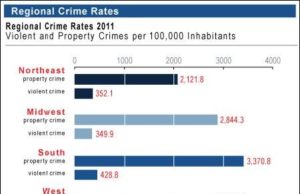
Women Accused of Stealing $7 Million from HIV and Cancer Charity
Two women in New York have been accused of stealing more than $7 million from a HIV and cancer charity. Prosecutors allege that the women used the funds for personal expenses, including luxury vacations and designer clothing. The case highlights the importance of accountability and transparency within charitable organizations.
The Accusations
According to prosecutors, the women were entrusted with the finances of the Greater New York City Area Cancer Foundation, a charity that supports individuals with HIV and cancer. The women allegedly used their positions to siphon off funds for personal use, including lavish vacations, expensive clothing, and luxury cars.
The Investigation
The theft was discovered after audits revealed financial irregularities within the charity. The women were arrested and charged with multiple counts of grand larceny and fraud. Prosecutors allege that the women used their positions within the charity to hide their theft, and that they may have been involved in similar schemes in other organizations.
The Consequences
If found guilty, the women face significant prison sentences and fines. However, the consequences of their actions go beyond the legal system. The theft of millions of dollars from a charity that supports individuals with HIV and cancer represents a betrayal of trust. Not only have they potentially harmed those they were meant to help, but they have also damaged the public’s trust in charitable organizations.
The Importance of Accountability and Transparency
Charitable organizations must be held accountable for their finances and must maintain transparency. Donors have the right to know how their contributions are being used, and organizations must work to ensure that funds are properly managed and allocated. While incidents like this may be rare, they serve as a reminder that transparency and accountability are crucial in maintaining the trust of donors and those served by these charities.
Conclusion
The case of the women accused of stealing millions of dollars from a HIV and cancer charity serves as an example of the harm that can be done when trust is abused. The women’s alleged actions not only represent a breach of ethics and the law, but also serve to undermine public trust in charitable organizations. As the legal process moves forward, it is important for charitable organizations to maintain accountability and transparency in order to restore and maintain trust with donors and the public.
On November 13, 2012, the US Attorney’s Office for the District of New Jersey announced that Keisha Jackson of Perth Amboy, New Jersey, and Jameshia Bryant of South River, New Jersey, pleaded guilty to defrauding a charity out of $7 million. The charity program donated HIV and cancer medication. The two defendants used their employment to steal the funds.
According to court documents, a pharmaceutical company donated millions worth of FDA-approved medications to people who needed treatment for HIV and cancer but had limited means to income. Jackson Bryant, and another co-defendant, Lateefah McKenzie Body, were employed with the corporation as customer service representatives at different times. The women received applications for benefits under the program, placed the application’s information into the computer system, and used the computers to send the donated medicines to qualified physicians and patients.
McKenzie Body is accused of entering over 600 fraudulent orders. The medicines were then sent to Jackson’s house and another address. McKenzie Body was eventually terminated from the company for a separate incident, and Bryant began operating the same scheme. Bryant is accused of entering about 950 fraudulent orders.
The medications that were sent to Jackson’s house and the other address were eventually resold so the defendants could make a profit.
Jackson and Bryant can each receive a maximum of 20 years in prison and a fine up to $250,000 or twice the gain or loss—whichever is greater. Bryant is scheduled for sentencing on February 20, 2013, and Bryant is scheduled for February 21, 2013. The charges against McKenzie Body are still pending. The FBI has not indicted if restitution is mandatory in the case or not.
Source: Federal Bureau of Investigation




























